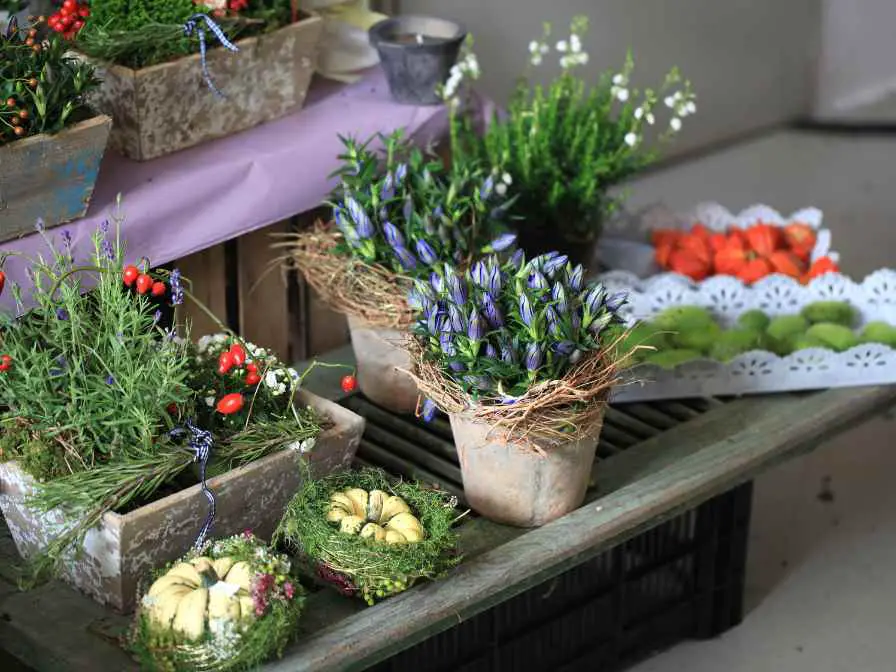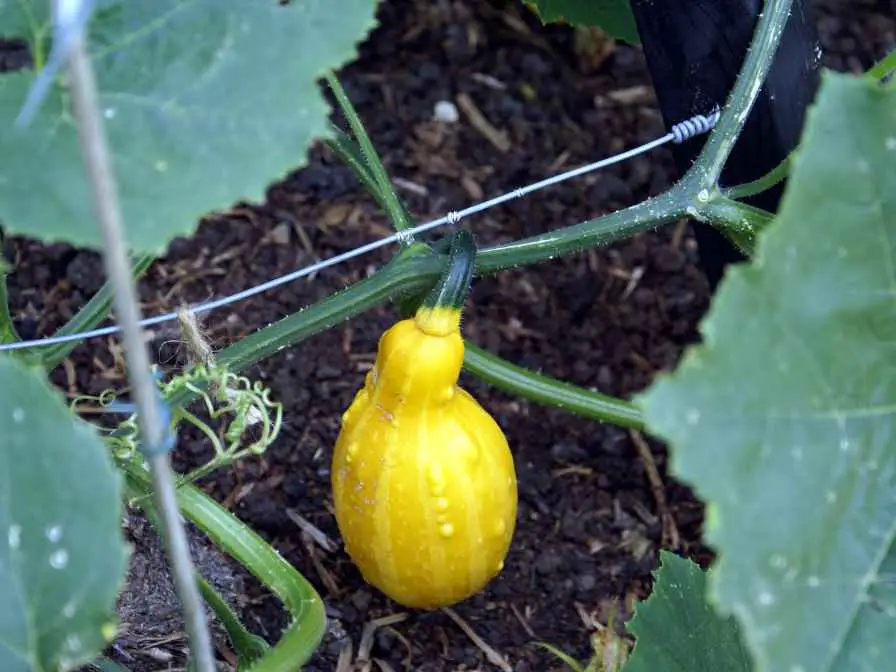Squash is a great vegetable for its taste and nutrients in it. People like this vegetable a lot. You can try planting this vegetable because it is easy to take care of. You can also try other plants which also complement the growth of squash plants. Well, we are going to tell you about squash companion plants.
Squash

Squash is a versatile vegetable that comes in many different varieties and colors, including green, yellow, and orange. It is a member of the gourd family, which also includes pumpkins and cucumbers. Squash is high in fiber, and a good source of vitamins A, low in calories, and vitamin C, potassium, and magnesium.
Summer squash, such as zucchini and yellow squash, has thin, tender skins and soft flesh. Making them ideal for quick cooking methods like grilling or sautéing. Winter squash, like butternut squash and acorn squash, has thicker skins and denser flesh. Which makes them better suited for roasting or baking. Squash can be used in a variety of dishes, including salads, soups, stews, and casseroles.
When selecting squash, look for ones that are firm and heavy for their size, with no soft spots or blemishes. Squash can be stored in a cool, dry place for up to a week. Or in the refrigerator for up to two weeks. To prepare squash, wash it thoroughly, then slice off the stem and cut it in half lengthwise. Scoop out the seeds and pulp, then slice or dice as desired.
Benefits of Planting Squash
Planting squash can have several benefits, both for the environment and for personal health and well-being. Here are some of the key benefits of planting squash:
Promotes Biodiversity
Squash is a flowering plant that attracts pollinators such as bees and butterflies to your garden. This can help promote biodiversity and support the health of your local ecosystem. It will also increase the production of all plants in the garden.
Provides fresh, healthy produce
Squash is a nutritious vegetable with high fiber content and is low in calories, and packed with vitamins and minerals. Planting squash in your garden can provide you with a fresh, healthy source of produce. That you can enjoy throughout the growing season.
Saves Money
Growing your squash can be a cost-effective way to get fresh produce. Instead of buying expensive vegetables at the grocery store, you can harvest your squash from your garden for a fraction of the cost.
Enhances Mental Well-being
Squash and other vegetable gardening may be a stress-relieving and satisfying exercise that enhances mental health. A sense of connectedness to nature and the environment may also be fostered by spending time in the garden.
Supports Sustainable Living
Planting squash and other vegetables can be part of a sustainable lifestyle that reduces your carbon footprint and supports eco-friendly practices. By growing your food, you can reduce your reliance on industrial agriculture and support a healthier, more sustainable food system.
Squash Companion Plants
Many plants act as companion plants for the squash. You can try any of these following plants to make sure that you get a good harvest of squash as well as other plants.
Nasturtiums
The colorful Nasturtium flowers not only add beauty to the garden but also repel squash bugs and beetles. They also attract aphids away from the squash plants, making them a great companion. These plants have beautiful flowers which add great ornamental value.
Marigolds
These flowers have a strong scent that repels many pests that can attack squash plants, including nematodes, whiteflies, and squash bugs. They also attract beneficial insects like ladybugs and lacewings, which prey on pests.
Radishes
These fast-growing plants can be interplanted with squash to deter squash bugs. They also add organic matter to the soil when their roots decompose, which can benefit the growth of squash. You can also eat them as they are quite nutritious.
Beans
The nitrogen-fixing bacteria in bean roots can benefit the growth of squash. Beans also help to improve soil fertility, which can increase the yield of squash. You can store and use beans for a longer period.
Corn
These tall plants provide shade for squash during hot summer days, reducing water loss and preventing sunscald. Corn and squash also have complementary nutrient requirements, making them good companions.
Peas
Like beans, peas also fix nitrogen in the soil and can benefit the growth of squash. They also help to improve soil structure and moisture retention. You can use the peas when they are green, and you can also dry them for later use.
Borage
This plant attracts pollinators that can help increase the yield of squash. It also repels many pests that can attack squash, including hornworms and cabbage worms. It has beautiful flowers. This plant has multiple benefits.
Dill
This herb attracts beneficial insects that prey on squash pests, such as aphids, squash bugs, and spider mites. It can also improve the flavor of squash when used in cooking. It has a lot of medicinal benefits. You can use it for many dishes as well.
Chives
These herbs can deter squash bugs and beetles with their strong scent. They also attract pollinators and beneficial insects to the garden. You can store it for almost 2 weeks. It tastes almost the same as onions.
Garlic
Garlic can repel many pests that attack squash plants, including aphids, squash bugs, and spider mites. It also has antifungal properties that can help prevent diseases like powdery mildew. It is an important component of the kitchen.
Cucumber
These plants can be inter-planted with squash to provide shade and reduce the risk of powdery mildew. They also attract pollinators and beneficial insects to the garden. There is a lot of water present in the cucumbers.
Spinach
The dense foliage of spinach can help shade the soil and conserve moisture for squash. Spinach also adds organic matter to the soil when it decomposes. The leafy green spinach has quite of nutrients in it.
Lettuce
Similar to spinach, lettuce can help shade the soil and conserve moisture for squash. It also adds organic matter to the soil and can help suppress weeds. Lettuce is used as the green ingredient in many salads.
Sunflowers
These tall plants can provide shade for squash during hot summer days. They also attract pollinators and beneficial insects to the garden. You can get the sunflower seeds to eat them raw, or you can extract oil from them.
Carrots
The tall foliage of carrots can help shade the soil and reduce water loss for squash. Carrots also add organic matter to the soil when they decompose, and they can help improve soil structure and moisture retention.
In a nutshell, any plant can be grown as a companion plant to the squash. You just need to choose the plant according to the space, care, and resources available. Once you have selected the plant you can go for it and get a good harvest from both of the plants.
FAQs
What should you not plant next to squash?

Potatoes or brassicas, are two of the plants which you should avoid planting next to squash plants or vice versa. You can choose any other plant as there are a lot of companion plants of squash.
What is best planted with squash?
There are a lot of plants that can act as a very good neighbor to the squash plants. Like corn, lettuce, peas, beans, and others. You can go for any of these.
What helps squash plants to grow?
Squash plants need good sun exposure for almost 6 hours a day. So choose the place wisely. Honeybees are good pollinators for the squash plants. Do choose the companion plants accordingly.

